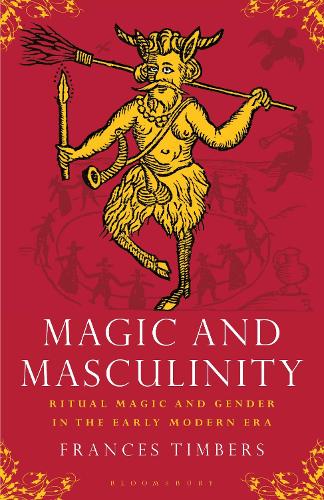
Magic and Masculinity: Ritual Magic and Gender in the Early Modern Era
(Paperback)
Publishing Details
Magic and Masculinity: Ritual Magic and Gender in the Early Modern Era
By (Author) Frances Timbers
Bloomsbury Publishing PLC
Bloomsbury Academic
30th April 2020
United Kingdom
Classifications
Tertiary Education
Non Fiction
Religious issues and debates
Blasphemy, heresy, apostasy
Religious intolerance, persecution and conflict
History of religion
Witchcraft
Gender studies, gender groups
133.430810942
Physical Properties
Paperback
232
Width 135mm, Height 216mm
272g
Description
In early modern England, the practice of ritual or ceremonial magic - the attempted communication with angels and demons - both reinforced and subverted existing concepts of gender. The majority of male magicians acted from a position of control and command commensurate with their social position in a patriarchal society; other men, however, used the notion of magic to subvert gender ideals while still aiming to attain hegemony. Whilst women who claimed to perform magic were usually more submissive in their attempted dealings with the spirit world, some female practitioners employed magic to undermine the patriarchal culture and further their own agenda. Frances Timbers studies the practice of ritual magic in the sixteenth and seventeenth centuries focusing especially on gender and sexual perspectives. Using the examples of well-known individuals who set themselves up as magicians (including John Dee, Simon Forman and William Lilly), as well as unpublished diaries and journals, literature and legal records, this book provides a unique analysis of early modern ceremonial magic from a gender perspective.
Author Bio
Frances Timbers is a Postdoctoral Researcher at University of Victoria, Canada. She holds a PhD from University of Toronto.
